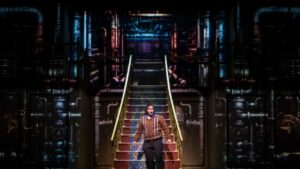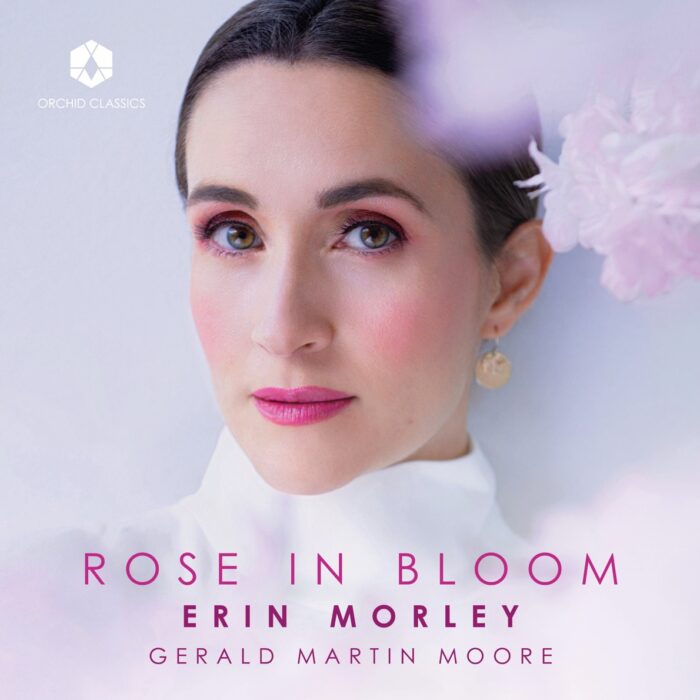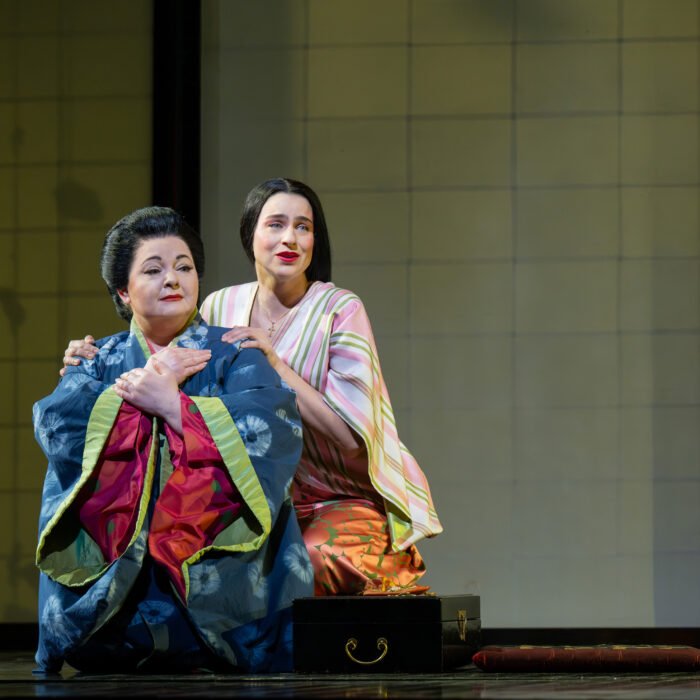
Atlanta Opera 2023-24 Review: The Shining
Kelly Kaduce & Craig Irvin Give Unforgettable Performances
By Afton Wooten(Photo credit: Raftermen/courtesy of The Atlanta Opera)
Atlanta Opera gave a skillful East Coast premiere of Paul Moravec and Mark Campbell’s “The Shining.”
As most are familiar with the plot of Stephen King’s 1977 novel, “The Shining,” from the 1980 Stanley Kubrick film, I will not recount the storyline. However, it is important to mention the operatic version is based solely on the book, which differs some from the movie.
The ending scene is the main difference worth summarizing. Instead of the infamous maze scene, Wendy Torrance, her son Danny, and cook Hallorann escape the nefarious Overlook Hotel, just in time, before the boiler explodes, killing Jack Torrance and destroying the hotel. The epilogue shows the trio at a resort in Maine recuperating and moving on from the violence they suffered.
It is hard not to compare the endings, as one seems much more fitting on the surface. Although I think it was a good choice to stay true to the book and drive home the intertwining themes of good versus evil, the production was lacking in horror, something particularly noticeable since this production was marketed as a “thriller” for Halloween.
Visually Stimulating
Like many new operas and modernized productions in recent years, “The Shining’s” creative team chose to rely heavily on projections for much of its scenic elements. Projection designer David Murakami, scenic director Jacquelyn Scott, lighting designer Jim French, and sound designer Jon Summers’ collaboration was exquisite. Each element they produced was well executed and tight.
Upon entering the theatre, the audience was brought into the cold, dark, mountainous woods of Colorado. The scrim depicted a wintery forest, with sounds of wind gently rustling the trees fanning through the auditorium. At downbeat, the projections transitioned to the Torrance family’s drive down a winding road. As the opera unfolded, the projections and the physical sets began to weave together. The second scrim behind the platform blurred the lines between the live performers and the ghostly figures haunting the Overlook Hotel.
During intermission, the boiler projections took on a fleshy appearance and sounds of hissing breath as if it were alive. Not once did the excellence of the stage design lessen and the mix of the casts’ remarkable performances and the unique visual experience was impeccable.
A Haunting Performance
Soprano Kelly Kaduce gave an apt performance of the loving wife and mother, Wendy. Kaduce’s interpretation of the complex character and Campbell’s expertly written score was perfectly harmonious. Her stage presence encapsulated the strained relationship with the husband she loves, despite his growing mania, and her instincts of protecting their son. This was heard throughout the opera, but was displayed best by the Kaduce’s tender lullabies sung to Danny at bedtime contrasting with verses of “blood, death, murder.” Kaduce’s unmatched control of pianissimos and full-voiced songs of terror was truly outstanding.
Baritone Craig Irvin gave a masterful performance of Jack. Not having his own aria did not hinder Irvin’s performance in the least. He clearly portrayed Jack’s battle with evils, both real and paranormal. Irvin’s baritone was smooth and rich in moments of clarity and biting when violence ensued. The vocal pairing of Irvin, bass-baritone Kevin Deas who played the cook, Dick Hallorann, and Kaduce at the beginning of Act One was stunning. Their voices combined created a perfect balance of lush baritone and glittering soprano.
Speaking of trios, Victor Ryan Robertson as Delbert Grady / Stuart Ullman, Kameron Lopreore as Bill Watson / Lloyd, and The Crooner sung by William Green in the Act I finale provided some comic relief and was delightfully confusing. The audience was jolted into a Gatsby-esque party with all of the un-dead hotel goers. The use of ghostly projections drove this scene.
Moravec’s clever score was brilliantly played by the Atlanta Opera Orchestra. Conductor Timothy Meyers delicately blended the deep bass sounds, and forceful percussion, with sharp winds to keep tensions high and serve the right amount of chaos.


